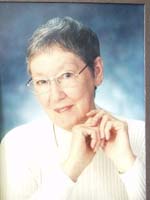Oliver Goldsmith
Categories: Male Authors - Anglophone Authors - Poets - Fundy Coast
Biography
Oliver Goldsmith, author of The Rising Village, has a historical place in Canadian letters as the first native-born English-Canadian poet to publish a volume of verse.
Born on 6 July 1794 in St. Andrews, N.B., ninth son of Loyalists Henry and Mary (Mason Goldsmith) and grand-nephew of famed Irish poet Oliver Goldsmith, his family moved to Halifax, N.S., when he was a small boy. There Goldsmith became involved with the Garrison Amateur Theatre from its opening in 1822. He composed an address in heroic couplets for this occasion; while the address was rejected, it marked the start of his brief literary career.
As a response and sequel to his great-uncle’s The Deserted Village (1770), his poem The Rising Village contrasts the decaying life of the Old World by describing in verse the struggles of Loyalist settlers in what are now the Maritime Provinces, and the development of colonial village life. The Rising Village was first published in London in 1825, with a second edition published by John McMillan of Saint John, N.B., in 1834. However, New Brunswick poet Fred Cogswell notes that his subsequent work was “undistinguished and makes the reader view Goldsmith’s retirement from verse-making without regret.”
Goldsmith had entered the commissariat department of the British Army in 1810, and spent almost the whole remainder of his life in that department. He was transferred to Saint John, N.B., in 1833, where he became an active member of the Mechanics’ Institute and the Albion Masonic Lodge. In 1844, he was promoted and moved to take up a post at a new British colony and naval station in Hong Kong. From this location he frequently mailed gifts of Chinese currency, artifacts, and sundry items to the Mechanics’ Institute, where they were displayed. These items, as well as his poetry and an autobiography discovered upon his death, are his legacy to the New Brunswick Museum.
Goldsmith succumbed to heat exhaustion in 1847, and was forced to relinquish his post in Hong Kong and return to England. He was then able to serve in Newfoundland and Corfu, rising to the position of Deputy Commissary General before his retirement in 1855. Goldsmith spent his retirement with his surviving sister in Liverpool, England, where he died on 23 June 1861. His Autobiography was edited by W.E. Myatt and published in 1943.
How has New Brunswick influenced your work?
Autobiography: "Encouraged by some friends I wrote a poem called The Rising Village…. The celebrated author of The Deserted Village [his granduncle] had pathetically displayed the anguish of his countrymen, on being forced, for various causes, to quit their native plains… and to seek a refuge in regions at that time but little known…. I, therefore, endeavoured to describe the sufferings they experienced in a new and uncultivated country, the difficulties they surmounted, the rise and progress of a village, and the prospects which promised happiness to its future possessors."
Goldsmith, Oliver. Autobiography of Oliver Goldsmith. Toronto: Ryerson Press, 1943.
|
Featured Publication |
||||
|---|---|---|---|---|
|
The Rising Village, with Other Poems (1834) |
Excerpt: What noble courage must their hearts have fired, How great the ardour which their souls inspired, Who leaving far behind their native plain, Have sought a home beyond the Western main; And braved the perils of the stormy seas, In search of wealth, of freedom, and of ease! Oh! None can tell but they who sadly share The bosom's anguish, and its wild despair, What dire distress awaits the hardy bands, That venture first on bleak and desert lands. How great the pain, the danger, and the toil, Which mark the first rude culture of the soil. When, looking round, the lonely settler sees His home amid a wilderness of trees: How sinks his heart in those deep solitudes, Where not a voice upon his ear intrudes; Where solemn silence all the waste pervades, Heightening the horror of its gloomy shades; Save where the sturdy woodman' s strokes resound, That strew the fallen forest on the ground. See! From their heights the lofty pines descend, And crackling, down their pond'rous lengths extend. Soon from their boughs the curling flames arise, Mount into the air, and redden all the skies; And, where the forest once its foliage spread The golden corn triumphant waves its head. |
|||
Find this author in the New Brunswick public libraries catalogue.
Source(s):

